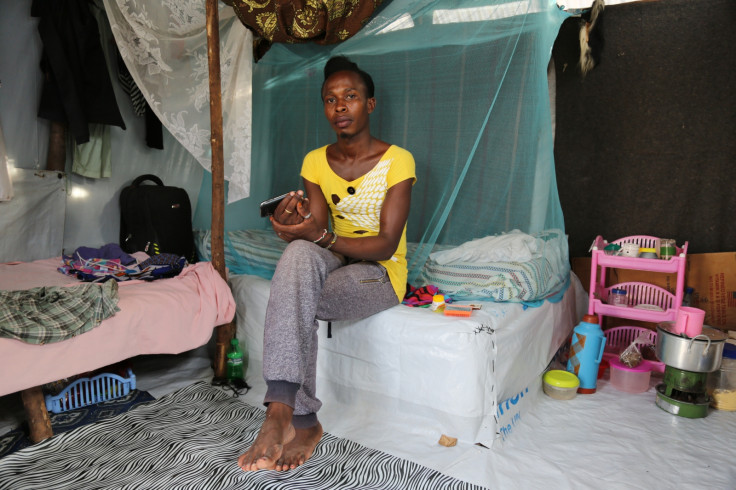Uganda LGBTI community still targeted as 'people don't know repressive law abolished'
Three years after Uganda's anti-gay law was dropped discrimination is still widespread.

Three years after Uganda's repressive anti-gay legislation was dropped, members of the lesbian, gay, bisexual, trans, and/or intersex (LGBTI) community are still facing severe discrimination.
In 2014, Uganda attracted a storm of international condemnation after enacting the Uganda Anti-Homosexuality Act 2014, one of the harshest anti-gay laws in Africa, which allowed for life imprisonment for "aggravated homosexuality". A constitutional court later overturned the law because of legal technicalities.
But Uganda is a deeply conservative society, where homosexuality is still punishable by imprisonment, and politicians are continuously making the headlines for their vitriolic attacks against members of the LGBTI community.
Simon Lokodo, the State Minister of Ethics and Integrity, is one of them. Obsessed with the struggle against homosexuality, he has accused homosexuals of wanting "to rape" him, and told state media the government had bought a $88,000 porn detection machine from South Korea.
"We will attack and attack again. I have new tactics. We are going to get (a) machine that will detect gays and pornographers, especially those who use applications such as WhatsApp for bad purposes," Reverend Lokodo said.
The law may have been dropped three years ago, but Lokodo's reactionary vision, which is officially that of President Yoweri Museveni's government, continues to negatively impact the LGBTI community.
"There are always people going to the police to denounce homosexuals (...) People do not know that the law has been abolished," LGBT rights activist Pepe Julian Onziema, a social worker and programme director of Kampala-based Sexual Minorities Uganda (SMUG), is quoted as saying by RFI. "Homosexuals are still subject to extortion. Before, homosexuals were expelled from their homes, but today they are kept prisoners in their families and ill-treated."
In August 2016, police raided a trendy bar in Kampala, where the LGBTI community was organising an event. Many participants were reportedly arrested and beaten. Some were forced to undress and humiliated. Beaten during the police operation, Onziema was injured, resulting in hearing loss. "I live with fear but I can not allow him to stop me from continuing."
Gays and lesbians in Uganda often have to hide their sexual orientation, fearful that coming out will attract stigma and hostility from family and friends, or the loss of a job or an apartment. But living secretive lives does not suffice to avoid social exclusion, homelessness or abuse: tabloids regularly reveal the identity of allegedly homosexuals of Ugandan society.
For the rights activist, there are reasons for optimism, however. "For three years now, there have been less and less hateful political speeches against LGBT people," he said.
On Tuesday (16 May), Uganda's censorship board banned a Dutch film The Dinner Club after accusing it of "glorifying homosexuality" because the film included scenes of "gay men sauntering away drunk". The emEmbassy of The Netherlands in Kampala "deplored" the media watchdog's decision to ban the film.
Homosexuality is illegal in 37 African countries.
© Copyright IBTimes 2025. All rights reserved.






















